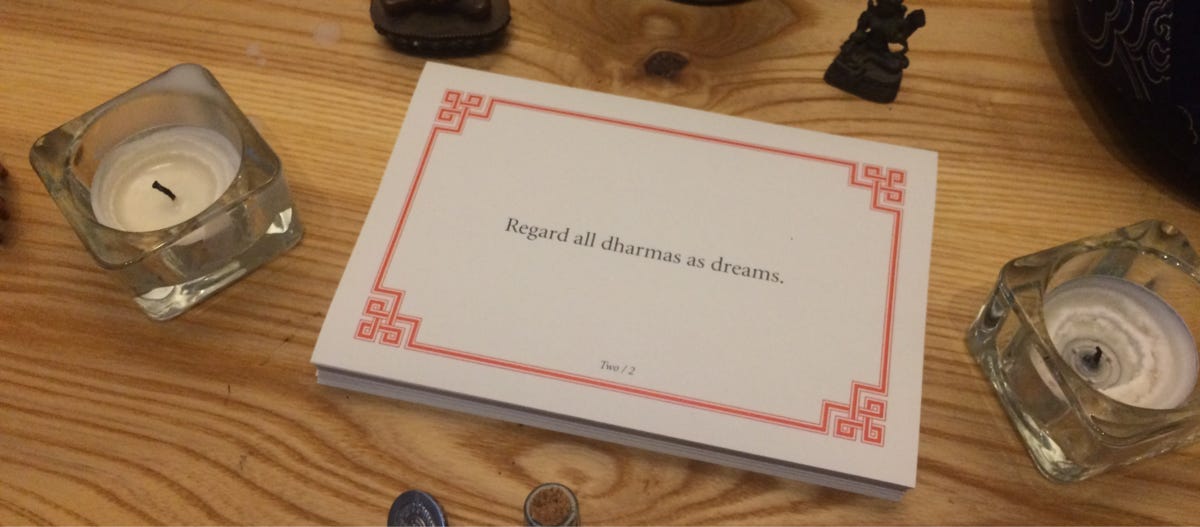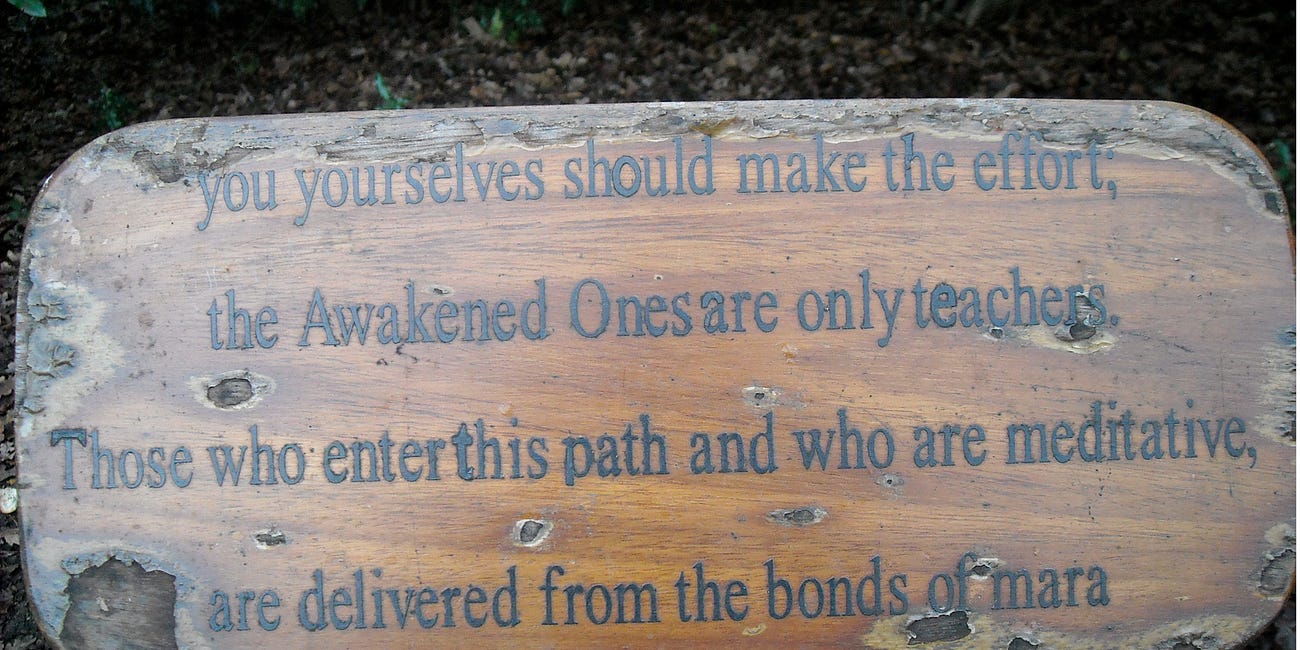Lojong Practice Journal: Regard all dharmas as dreams
The 59 slogans through a social justice lens
Whenever one is studying original texts and the various ways they have been taught, it can be quite helpful to look at a few different translations. The first translation I heard of this slogan was as it is written in the image above: Regard all dharmas as dreams. But since I started this line of study and practice I have come across translations that swap out ‘dharma’ for ‘phenomena’. For example, in the Lojong commentary ‘Enlightened Courage’ by Dilgo Khyentse Rinpoche this line is translated as ‘Consider all phenomena as a dream’.
Although the use of the word ‘dharma’ is not a mistranslation, I think ‘phenomena’ is a better word choice. ‘Dharma’ is a bit of a Buddhist buzzword and therefore, can be exclusionary to anyone without a Buddhist background hearing these teachings for the first time.
In the interest of dispelling the buzzword-y-ness, I will explain ‘dharma’ as it is intended in the context of this slogan. This is a word I often use in my podcast and other pieces I have written. It can be written as ‘Dharma’, and the choice to capitalise the ‘D’ can be personal, but often, when the ‘D’ is capitalised, the term is referring to the original teachings of the Buddha. But what it is, effectively, is the way things are. The universal Truth. It is not dogma or belief, but the basis of reality — or, simply put phenomena.
So what does it mean to consider all dharma/phenomena as a dream?
Dreams have a very unreal quality to them. They are not tangible. We can’t really pin them down. They don’t exist intrinsically somewhere. They are influenced by our thoughts and emotions, the experiences of our day, and by things we unconsciously picked up on. They can be powerful and sometimes have a lasting effect, or fleeting and quickly forgotten. And notably, they are not something we consider as ‘real’ or ‘existing’.
This may sound confusing, given that we just established that dharma is the basis of reality. Are we meant to consider dharma as not existing?
But this isn’t about existing or not. It’s about inherent existence. That qualification is key to understanding what it is this slogan is instructing us to do. Another way it could be taught is: Let go of fixed ideas.
Everything is interrelated, which means everything is interdependent on everything else. Every human being is made up of many parts, and every human being is also a part of something else — beit a society, community or family, the world population, the kingdom of animals or the entire Universe.
When societies change, the people who create them change, because the people who create society are the society, and the society is the collection of people who create it. This is why the ‘inter’ part of interdependence is so important — why it’s not simply ‘dependence’. It is not a one-way street or even a two-way street. The universe is a multi-dimensional hypercube of relationships. That means everything we know and see and experience is infinitely flexible. Like a dream, almost anything is possible, and the potential for anything to arise or fall or change is constant.
This is a liberating place to be. It doesn’t mean we have the potential to fly, but it means we always have the potential to make a new choice, a different choice, that will create a new outcome that we didn’t expect.
To regard all dharma as dreams is to be open to infinite possibility.
Originally published on Medium.
This is part of a series of posts I did to support my practice. They will always be free for everyone to read and engage with, but if you want to support me financially, that is greatly appreciated. Tips, paid subscription, and regular e-transfers* help me cover the costs of being a creative human being in the world.
Toodle on over to www.KSCHatch.com to find out more about what I do.
Thank you!
*If you are in Canadia, you can send me a one off or onging e-transfer using the email faunawolf ‘at’ gmail ‘dot’ com





